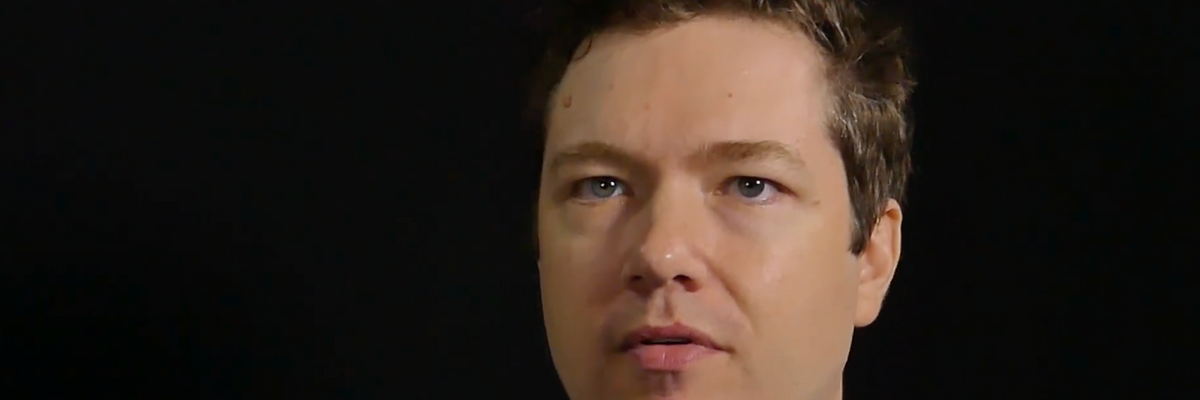A Florida journalist who accessed and made public unaired video footage of an interview that former
Fox News host Tucker Carlson conducted with the rapper Ye was arrested Thursday and hit with more than a dozen federal charges stemming in part from the disclosure, raising immediate concerns from press freedom advocates.
Timothy Burke, a Tampa-based media consultant and former
Daily Beast staffer, obtained and disseminated clips of the 2022 Ye interview—during which the rapper formerly known as Kanye West made antisemitic remarks that were edited out of the final version—as well as behind-the-scenes footage of Carlson, who left Fox last year.
The
26-page indictment against Burke accuses him of "utilizing compromised credentials to gain unauthorized access to protected computers" and "scouring those protected computers for electronic items and information," among other alleged crimes.
Though the indictment doesn't explicitly mention
Fox or Carlson, the Tampa Bay Timesreported that it says Burke "accessed a video stream of an interview featuring a show host for a 'multinational media company based in New York City' on Oct. 6, 2022—the same day Carlson's interview with West aired."
Burke and his legal team have denied any wrongdoing and rejected claims that Fox was "hacked,"
maintaining that he accessed the video footage using information "publicly posted to the internet."
"If a video is posted, public, unencrypted, and unprotected, then there's simply no crime committed when a journalist like Tim finds it, reviews it, and accurately reports on it, even where, and maybe especially where, the subjects wish it was suppressed," Mark Rasch, Burke's lawyer,
toldThe Washington Post in an interview last year. "That's the essence of journalism in the digital age."
The Justice Department is not pursuing charges against Vice or Media Matters—two outlets that published footage obtained by Burke.
"It's extremely dangerous for the government to appoint itself the judge of who is and isn't a journalist, especially in a world where journalism is rapidly evolving."
Caitlin Vogus, deputy director of advocacy at the Freedom of the Press Foundation (FPF), said in a
statement Thursday that "an investigative journalist's job is to find information that powerful people would prefer to be kept secret."
"It's a safe bet that if journalists need to ask permission to publish information that casts public figures in a negative light, the answer will often be 'no,'" Vogus added. "Journalists should be encouraged to use the internet to find newsworthy information—not prosecuted for doing so."
FPF called the Justice Department's indictment "disturbing" and noted that Burke's legal team says he obtained the Ye interview footage "from a livestreaming site where
Fox uploaded unencrypted footage of the entire interview with Ye to a public URL."
"They've contended that Burke obtained login credentials for an unrestricted 'demo account' for the site from a source, who found them publicly posted online. He was then able to locate a URL hosting the interview that can be accessed by anyone, without credentials," FPF observed. "The indictment against Burke does not accuse him and his source of hacking into any servers, or deceiving anyone, to get the outtakes or any of the other content he allegedly intercepted."
After FBI agents raided Burke's Florida home and
seized his computers last May, FPF and other major press freedom organizations demanded answers about the search and warned it could have a chilling effect on newsgathering.
But in a court filing last August, the Justice Department attempted to argue that Burke is not, in fact, a journalist because his work has not been "regularly published under his own byline after January 1, 2021 as a salaried employee of, or independent contractor for, any newspaper" or other news outlet.
The DOJ has
similarly argued that WikiLeaks founder Julian Assange, whom the U.S. is currently trying to extradite from the United Kingdom and prosecute for alleged espionage, is not a journalist.
Journalist Kevin Gosztola argued that "by charging Burke, the U.S. Justice Department is sending a clear signal to the news media that prosecutors will not hesitate to aid a powerful or influential corporation in suppressing investigative journalism."
"The Justice Department should not be in the business of deciding who and is not a reporter in order to further a criminal prosecution," Gosztola wrote. "And yet, they are doing so with this case (and in the case against WikiLeaks founder Julian Assange)."
Stern said Thursday that "it's extremely dangerous for the government to appoint itself the judge of who is and isn't a journalist, especially in a world where journalism is rapidly evolving."
"You don't have to be employed by a news outlet or write under your own byline to engage in journalism. But this isn't even a close case—Burke is a career journalist by any definition," Stern added. "It's disturbing that the indictment makes no mention of the fact that Burke's reason for accessing the outtakes was to share newsworthy information with the public, as he has been doing his entire career."
